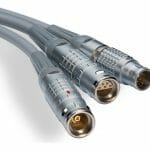The new Eplan Platform version 2.7 is now available. The platform’s system for consistent digitisation and an interdisciplinary focus for engineering processes allow data to be continually enhanced along the entire value chain process. Nineteen software languages, numerous detail upgrades and bidirectional connections to automation technology – including to TIA Portal by Siemens and to Melsoft IQ by Mitsubishi – guarantee more efficient engineering.
Eplan Platform solutions for electrical engineering and fluid power technology, control cabinet design, and process technology use a uniform database and project information can be transferred along the entire process, from design engineering to manufacturing and even maintenance. The so-called “single source of truth” is at the heart of every application. Systems provider Eplan has thus positioned its system as the foundation for consistent digitisation for engineering automation technology. This often takes place globally, and the software is designed for this by being available in nineteen languages. The new additions of a Turkish language version and a Romanian user interface round out the versatility of the platform’s language support.
Creating and reusing templates
There have also been numerous improvements in the platform’s individual topic areas. Using the expanded definition possibilities for schematic templates in electrical and fluid power engineering, users can more easily standardise their projects and reuse data 1:1. For instance, macro boxes can now be designed as polylines and allow users to make customised definitions for schematic templates, enabling faster standardisation. These types of templates can also serve for getting started in Eplan Cogineer – the new engineering solution for automated schematic creation with just a mouse click. Users can look forward to the sneak preview of the upcoming cloud version that will be presented for the first time in Nuremberg, Germany.
In the area of process engineering, the new piping module in Eplan Preplanning is one of the highlights. Users benefit from more detailed plant documentation that includes piping data even earlier in the process. Handling for wire harness engineering has also been made even more straightforward for users. Heat-shrink tubing now allows plugs to easily be assigned in the 2D and 3D design environments, and the viewing options for connection hardware have been improved. This makes manufacturing documentation even more detailed, which accelerates wire harness manufacturing processes. New designing options such as property configurations in model views, expanded manufacturing interfaces in Eplan Pro Panel, and an updated Eplan Smart Wiring with new client server technology round off the numerous improvements and innovations.
Data exchange for Electrical Engineering and Automation
Interdisciplinary data exchange is also a focus area for the new interface between Eplan Platform and Siemens TIA Portal: set up for the future for the increasingly popular AutomationML format for Industry 4.0 environments. This bidirectional exchange, which also works seamlessly with Melsoft IQ – Mitsubishi’s automation platform – has been expanded and will be presented at the SPS IPC Drives. Users can exchange data in both directions at any stage of the project, later edit and then synchronise the project. This replaces the time-consuming, often multiple manual rechecking for changes or an iterative approach, meaning that this moves engineering a step closer to full process digitisation in the era of Industry 4.0 and the Internet of Things. Principally, however, the prerequisite for this is the consistent digitisation of all processes and data, from engineering to manufacturing through to operation and maintenance. This is the only way that the keywords Smart Engineering, Smart Production and Smart Data can really be infused with life.







